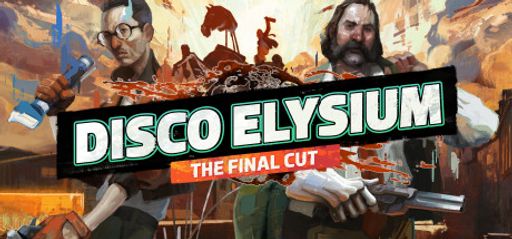I’ve been charting RPGs since the days when character sheets were hand-scrawled on notebook margins, and I’ve devoured speedruns for hidden skips. So when Disco Elysium: The Final Cut landed on my desk, I strapped in my inner gumshoe and braced for another cookie-cutter murder mystery. What I got instead was a brutal brain-scrambler that rewrote the rules on detective games. Here’s how ZA/UM’s Alba-soaked epic stacks up in the crowded single-player field.
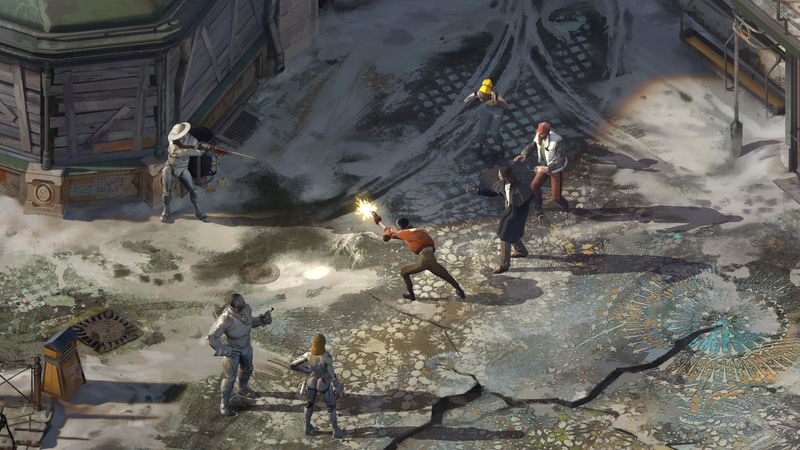
Overall Impressions
Disco Elysium: The Final Cut isn’t your typical detective RPG—it’s a surreal plunge into a decaying city where the real investigation takes place inside your own head. Instead of traditional clue-chasing, you navigate a rich tapestry of thoughts, feelings, and hallucinations. The game stands apart with three defining features: a fully voiced narrative that transforms it into a gripping audio drama, a bold skill system where your mind is both ally and saboteur, and politically charged “vision quests” that turn each playthrough into a personalized ideological journey.
However, this introspective approach isn’t for everyone. Players craving fast-paced combat or structured mission loops may feel adrift. Unlike more rigid RPGs such as Divinity: Original Sin, The Final Cut trades action for psychological depth and narrative complexity. It’s a deliberate choice—one that rewards patience and immersion—but for some, the slow-burn storytelling may lose its spark long before the credits roll.
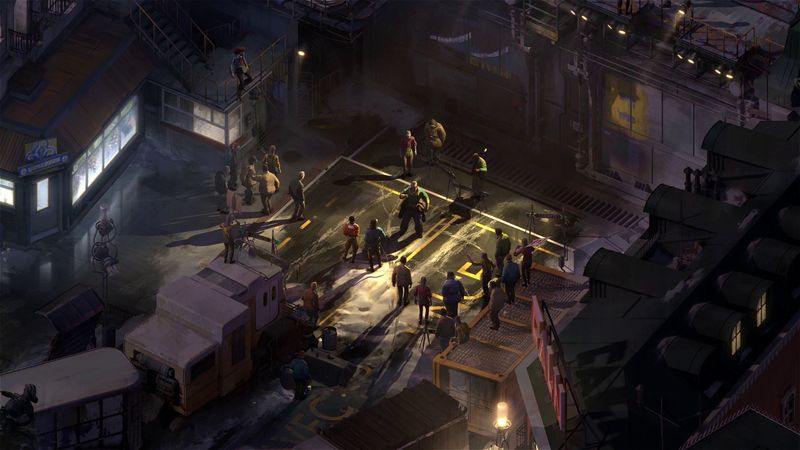
Gameplay Mechanics
At its heart, Disco Elysium turns traditional RPG mechanics inward—you’re rolling dice in your own mind. Combat is replaced with psychological checks against twelve distinct “Thought Cabinets” like Drama Queen, Inland Empire, and Logic. Each is a voice in your head, alternately heckling, guiding, or distracting you. This design creates intimate, unpredictable moments, from hallucinating a plush whale in a motel room to uncovering a street kid’s tragic backstory through a timely Perception check. Even failures—like accidentally admitting to corruption—spiral into delicious narrative chaos.
When the system clicks, it feels like you’re hacking your own psyche to unravel the mystery. Each success or failure reshapes the investigation, making your mental state as influential as any traditional weapon. Misfires can slow the pace, leaving you stuck in walls of dialogue while your inner chorus bickers, but they rarely break the immersion. Instead, these pauses underscore the game’s central idea: the most complex battleground isn’t the city’s streets—it’s inside your head.
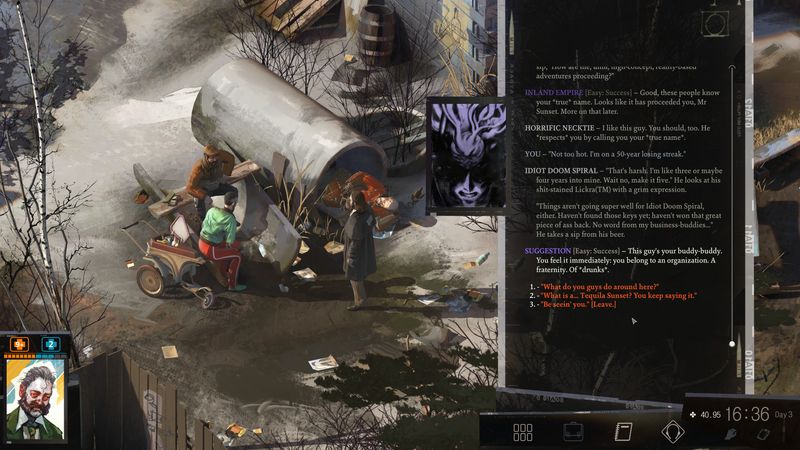
Story and Characters
The Final Cut’s murder plot is a scaffold for grieving philosophies. You play a detective who can’t remember who he is. Your partner, Kim Kitsuragi, is the moral spine—dry, compassionate, world-weary. He’s so well-written that even a cranky speedrunner like me softens when he quotes Orwell. Side characters range from a drug-addled artist to union stalwarts preaching class struggle, each bursting with quotable lines. The world of Revachol is a half-wrecked atlas of failed revolutions, and every alley echoes with whispers of what could’ve been. You’ll meet a barroom full of human wreckage, but they all feel vividly alive. A recent player review said this game “grabs you by the ribs and shakes you to your core.” That’s not hyperbole—it does.
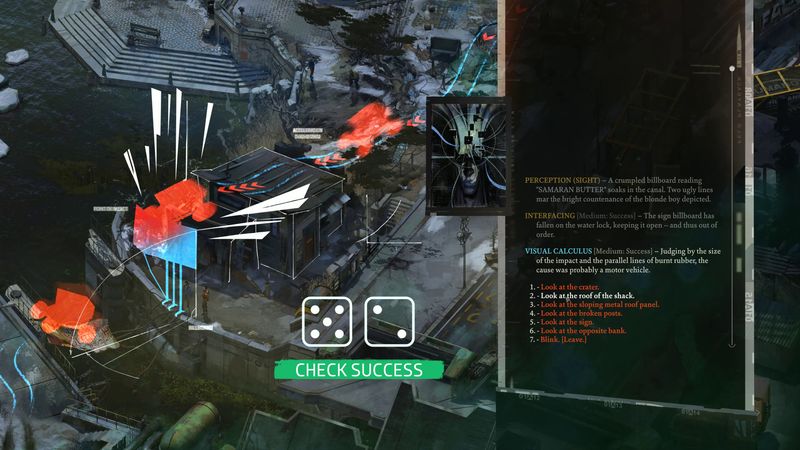
Visuals and Graphics
Painterly strokes give Electricity Square the texture of a warped oil painting. ZA/UM’s artists built every backdrop by hand, then layered in grime, graffiti and flickering neon. Character portraits are rough-hewn sketches that shift expression with each dialogue choice. It’s not technical show-offery—no ray tracing fireworks—but the art style is so unified it feels like stepping into a graphic novel where your thoughts bleed onto the page.
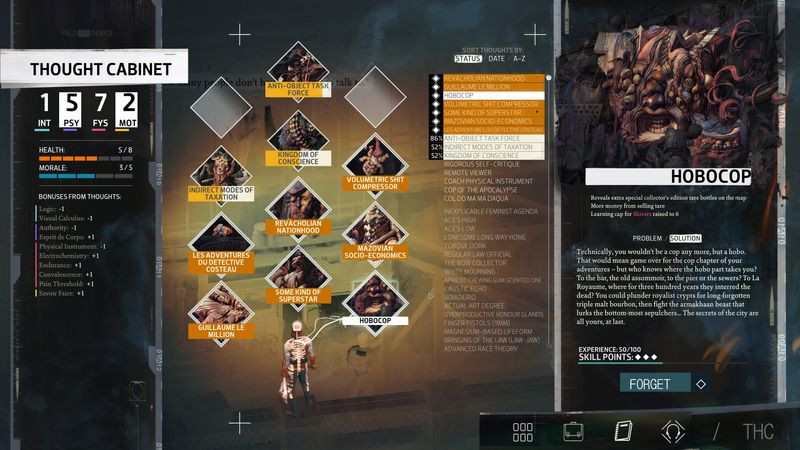
Sound and Music
The soundtrack is a mournful blend of saxophone, ambient hum and tense strings. I’ve used tracks from the OST as focus playlists during long speedrun sessions—yes, guilty confession. Voice acting in The Final Cut turns previously silent NPCs into fully formed personalities. Even the lowliest drunks sound distinct. Sound effects are sparing but sharp: a door slam echoes like a loaded question, footsteps scuff in ash, and every shotgun cock feels consequential. A well-timed musical swell had me pausing to salute the speakers.
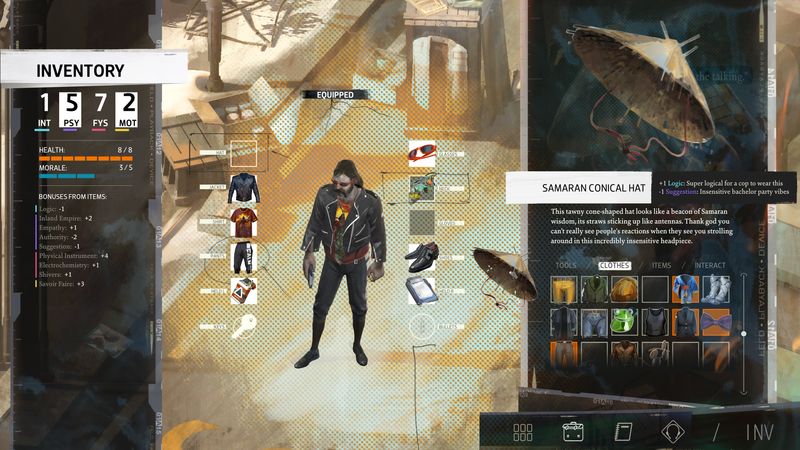
Difficulty and Replayability
Disco Elysium doesn’t punish you with tough fights; it hangs you out to dry with your own fractured psyche. The learning curve is gentle—morning-after sequences may kill you more often than later boss fights. Replayability is baked in: you can reroute your detective through Marxist dreams, radical socialism or heroic duty, and each new Thought Cabinet idea you adopt reshuffles the deck. One playthrough I played as a bullish brawler, punching suspects instead of questioning them; the next I tried a hyper-logical rollout, turning every chat into a formal interview. Both were fresh.
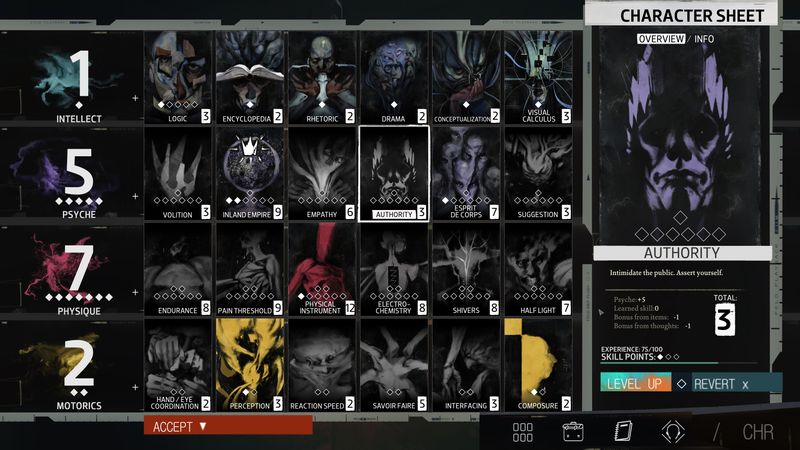
Trivia & Behind the Scenes
Disco Elysium, developed by a team of Estonian art students turned indie studio ZA/UM, began as a passion project before raising over $600,000 through crowdfunding. Its acclaimed Final Cut edition introduced free political questlines as a thank-you to original players, further enriching the game’s depth. Lauded for its storytelling, the title won four awards at The Game Awards 2019, including the prestigious Best Narrative honor.
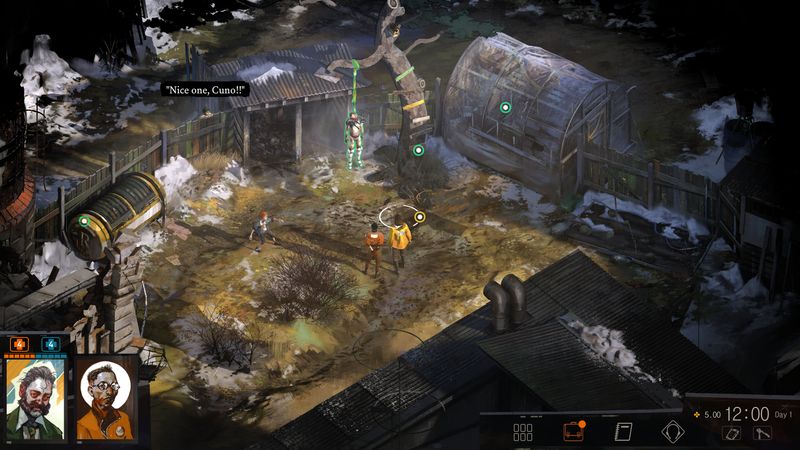
Final Thoughts
I dock half a star only because this isn’t the game you fire up for quick dopamine hits. It’s a long, brooding conversation with your own ambitions and demons. But few games make you laugh, rage-quit, empathize and keep scribbling notes in the margins of your notebook in quite the same way. If you’re ready to interrogate yourself as ruthlessly as you do suspects, Disco Elysium: The Final Cut is must-play. Just don’t say I didn’t warn you when your brain starts arguing back.
Rating: 4.5 out of 5 stars

